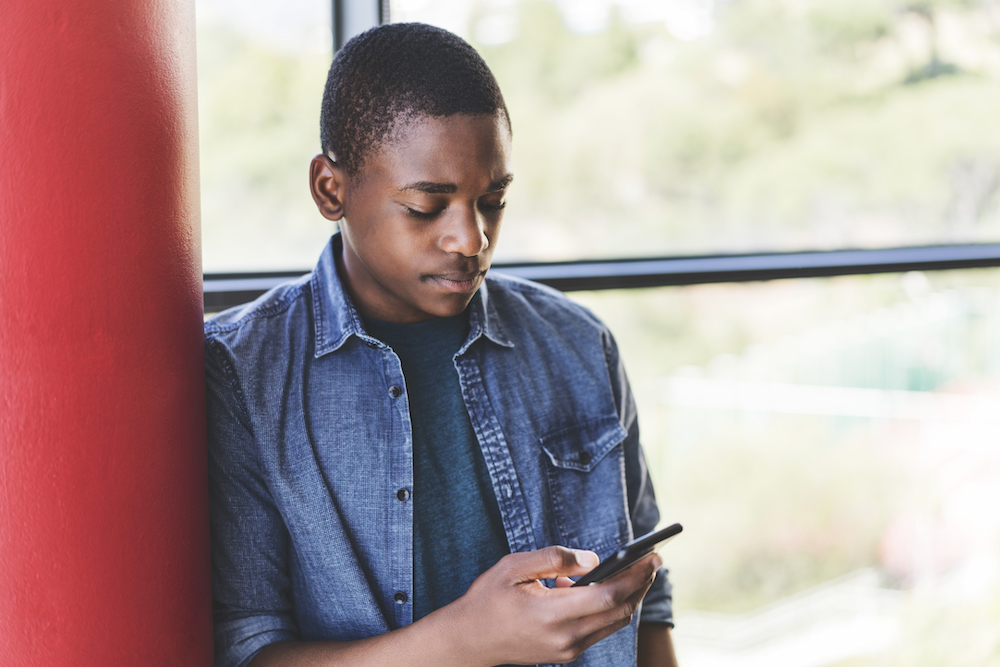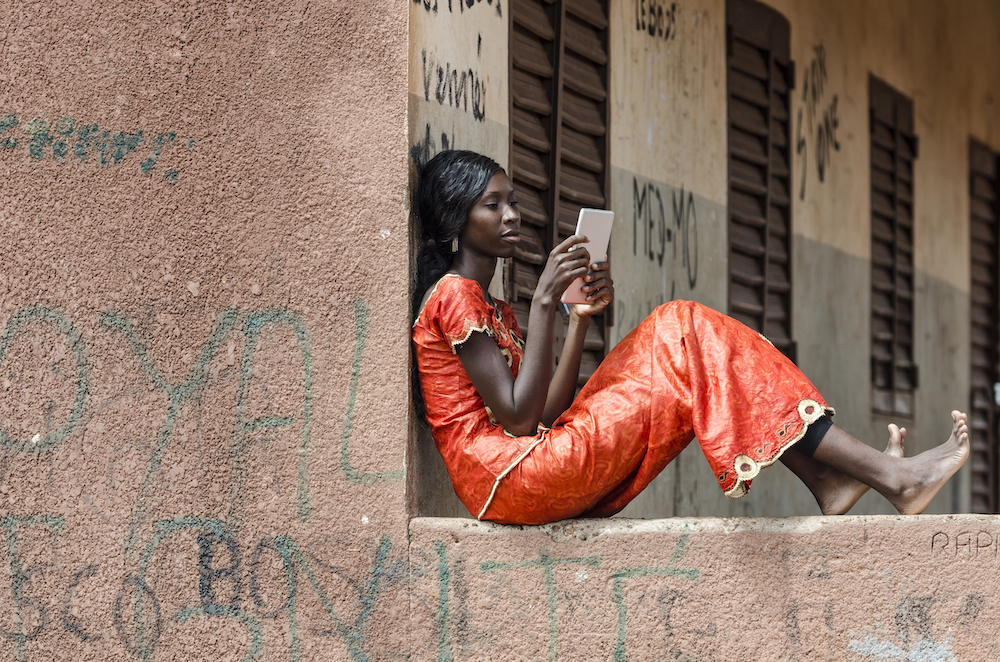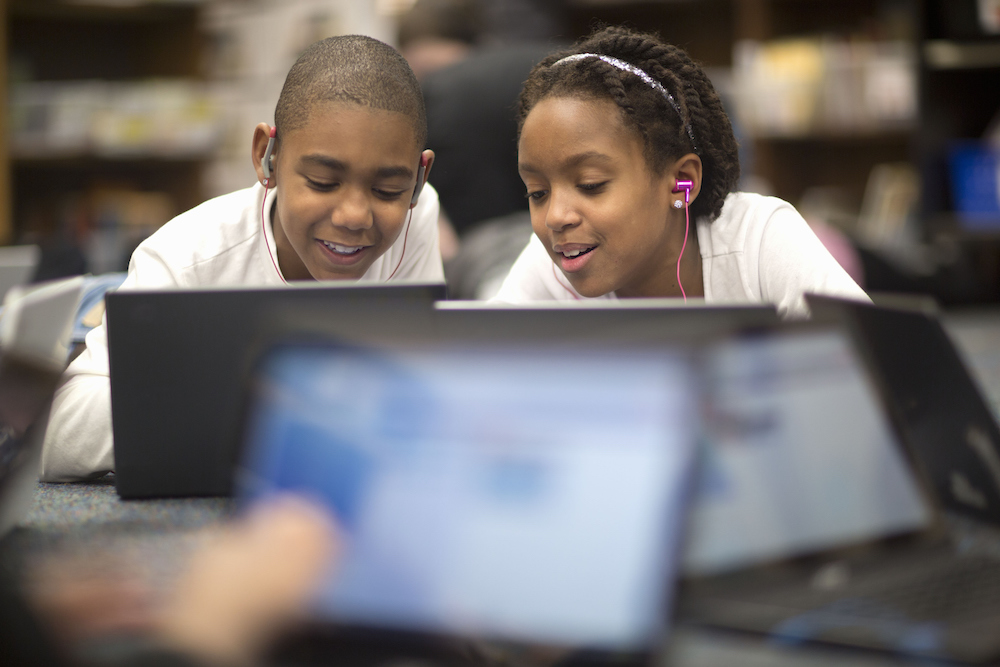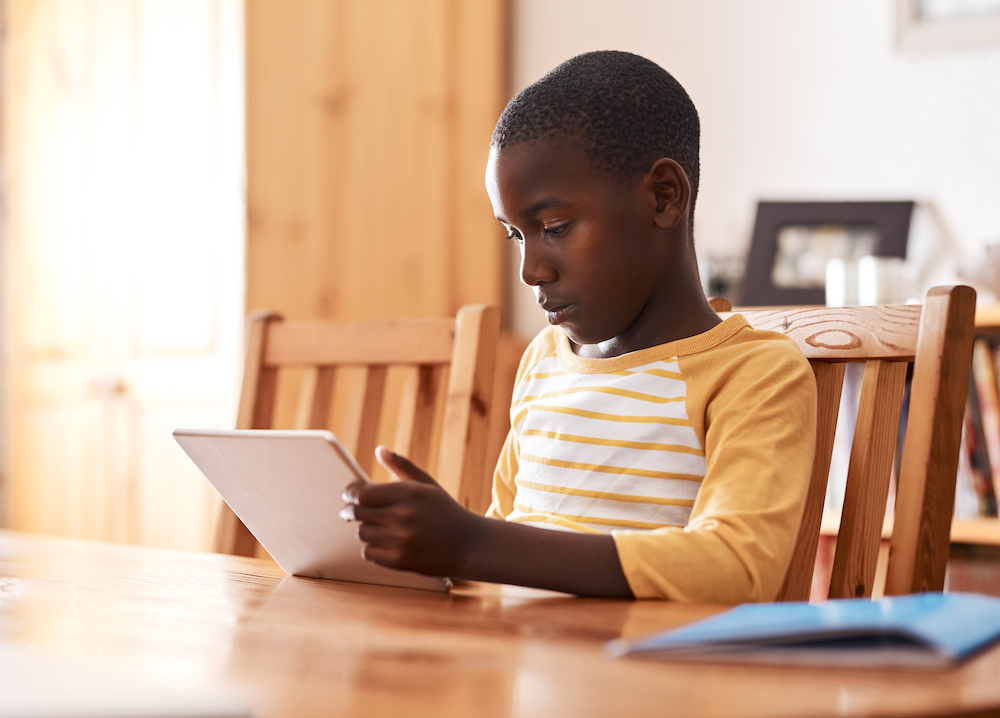Lesson 4: Different Perspectives
Before you start the lesson, make sure to read through the lesson overview and the lesson preparation. The Facilitator Guide can also help you prepare.
Lesson Overview
Students will examine the role of perspective when evaluating information linked to their online presence or the online presence of others. They will gain awareness of the relevant contextual factors (e.g., time, cultural, social, local/regional/global) that impact one’s online presence. Additionally, students will consider the implications of the information they put online on their relationships with family, friends, and authority figures (e.g., teachers, employers).
Lesson Preparation
ESTIMATED TIME
ESSENTIAL QUESTION
- What information online helps shape how others view you?
MATERIALS
- “Hiwot’s Social Media Profile” Handout
- Projector for "Rubin Vase Illusion" Handout
- Pencils
- Paper
PREPARATION
- Print one handout per student.
- Students will need internet access for this lesson.
- There are several opportunities to localize content to your students’ experience and local context. These opportunities are flagged as “Teacher’s Notes” throughout. We suggest you read through the lesson ahead of time and prepare the examples before the lesson begins.
OPTIONAL: ISTE DIGCITCOMMIT COMPETENCY
- INCLUSIVE: I am open to hearing and respectfully recognizing multiple viewpoints and I engage with others online with respect and empathy.
What is Perspective?
Part 1
IMAGE CLASS INTERACTION
Project the Rubin Vase Illusion image on a projection screen. While asking questions, ask students to come up and point out which image they see.
ASK YOUR STUDENTS
- What do you see when you look at this image?
- How many of you see the vase?
- How many of you see the two faces?
- Can you see both at once?
- What you see can depend on your perspective.
- What do you think perspective is?
CLASS INTERACTION
Write down student definitions on the board.
TELL YOUR STUDENTS
Perspective is a particular attitude toward something — a point of view.
Part 2
TELL YOUR STUDENTS
Here’s another example. Let’s say our friend Abdul just made it onto the school football team. When he tells his mom, he says, “I made it onto the football team!” His mother is very proud of him. When Abdul tells his best friend, Raviv, that he made it onto the team, Raviv says that he is very happy for Abdul.
Abdul also tells his friend Amed he made it onto the football team. Amed, however, had also tried out and Abdul got his spot. So, Amed is not so happy. Abdul is also a member of the science club and now he has to miss science meetings so he can go to football practice. When he tells Amina, the president of the science club, she isn’t very happy either.
All of these different people in Abdul’s life heard the same piece of information: Abdul made it onto the football team.
ASK YOUR STUDENTS
- Why do they all react differently?
- Why do their different perspectives and their various relationships to Abdul, matter?
- Can you think of any other examples of how various people might view the same situation differently?
- Why does perspective matter?
Teacher's NoteThe example above can be further localized to reflect your student’s local context in the area you are teaching. For example:
- Ethiopia: Tsehay (F), Gebre (M), Bisrat (M), and Genet (F) instead.
- Ghana: Use names like Kofi (M), Kojo (M), Kweku (M), Akua (F), Afua (F), and Nana (F) instead.
- Kenya: Use names like Luanda (M), Charles (M), Akinyi (F), and Muthoni (F) instead.
- Nigeria: Use names like Abdul (M), Ade (M), Chioma (F), and Amina (F) instead.
- Zambia: Use names like Chanda (M), Patrick (M), Radhia (F), and Valerie (F) instead.
Part 3
CLASS INTERACTION
Divide students into groups of three or four. Give each group paper and pens or pencils.
TELL YOUR STUDENTS
I’m going to hand each group a resource with Hiwot’s fabricated social media profile and a slip of paper. On the slip of paper is the name of someone in Hiwot’s life. As a group, imagine that you are looking at this social media profile through the eyes of the person on the slip of paper.
Who do you think Hiwot is? What assumptions can you make? What does she like? What does she dislike? What has she commented on? What are your perceptions of Hiwot, based on your perspective?
You will have 10 minutes. Be prepared to present at the end!
Ask each group to present. Potential roles/people in Hiwot’s life:
- Hiwot’s mother, who is concerned for her daughter’s safety
- Hiwot’s best friend, who looks up to her
- A girl at a neighboring school, who doesn’t know Hiwot
- Hiwot’s teacher
- A potential boss who is considering Hiwot for a job
Teacher's NoteThis example is intended to show students how different people might interpret the same social media profile in order to get them to think critically about how they portray themselves online. The example above can be further localized to reflect your student’s local context in the area you are teaching. For example:
- Ethiopia: Use names like Msekerem or Hiwot instead.
- Kenya: Use names like Atieno or Lemanyanh instead.
- Nigeria: Use names like Abraham or Abdul instead.
- Zambia: Use names like Mulenga instead.
ASK YOUR STUDENTS
- What were some of the differences in the ways that you perceived and evaluated Hiwot?
- Why do you think those differences exist?
- Do you think that all of these evaluations are accurate? Why/why not?
- Can you think of times when this happened in your life — when the same information was interpreted differently by different people?
- How many of you have had disagreements with your parents/guardians? Friends?
- How many of you use social media platforms? Do you think about how other people perceive your social media profiles?
- Have you ever deleted content or untagged yourself in content shared on social media (e.g., photos, videos, text-based posts)? Why?
Reflections on Perspective
TELL YOUR STUDENTS
Think about the different ways that people in your life know you.
ASK YOUR STUDENTS
- Do you ever act differently around different people?
- Do you talk the same way to your parents/guardians or teachers as you do to your friends? Why/why not?
TELL YOUR STUDENTS
We’re all slightly different people depending on where we are and who we’re with.
As part of this activity, we are going to discuss how you present yourself online, especially on social media and how others may perceive you in different ways depending on their perspective.
ASK YOUR STUDENTS
- Do you present yourself differently online to different people?
- For example, on one platform (e.g., Facebook), you might use your real name, but do you use your real name for everything you do on the Internet?
- What are platforms where you don’t always go by your real name or platforms that you use anonymously? Why?
- Do you think that the information you’ve shared online about yourself shows the whole picture of who you are?
- Do you think your social media profiles tell the entire story? Do you want them to?
- How might people view you if they only had access to some of your information?
- For example, would your parents’/guardians’ perspective change if they saw everything you did on one platform but not on another?
- Do you ever keep your posts private? Why?
TELL YOUR STUDENTS
We talked a lot about perspective today.
ASK YOUR STUDENTS
- Based on our conversation, what is one thing you learned about perspective today?
- What is another way that perspective affects how we evaluate information? Can you name a recent current event where this was relevant?
- How is perspective important not just in our personal lives, but on the news as well?
Assignment
TELL YOUR STUDENTS
Take a photo/screenshot of any social media post (i.e., a photo, video, or text-based post) (it does not have to be their own). Identify three roles in relation to the individual’s social media post (e.g., friend, family member, teacher) and, for each role, in a short paragraph describe how the individual might think about this post.
Teacher's Note
In the last 10 minutes, divide students into pairs and have them share with their partner at least two ways they believe perspective is important in the context of the post they chose.
Congrats!
You've finished the lesson
Source:
This content is hosted by Meta and currently includes learning resources drawn from Youth and Media at the Berkman Klein Center for Internet & Society at Harvard University under a Creative Commons Attribution-ShareAlike 4.0 International license. You can make use of them, including copying and preparing derivative works, whether commercial or non-commercial, so long as you attribute Youth and Media as the original source and follow the other terms of the license, sharing any further works under the same terms.



 Previous Lesson
Previous Lesson 




